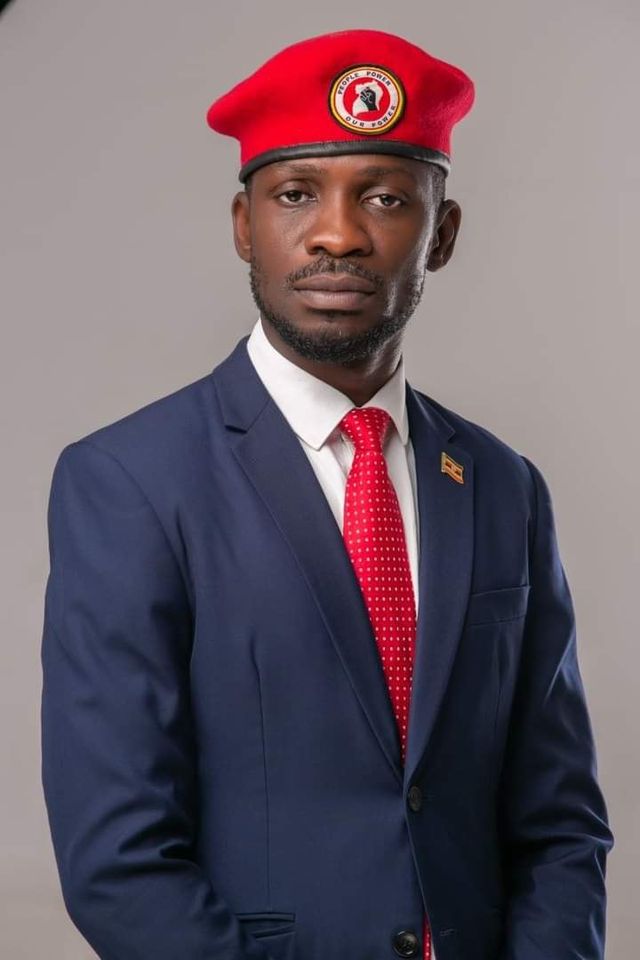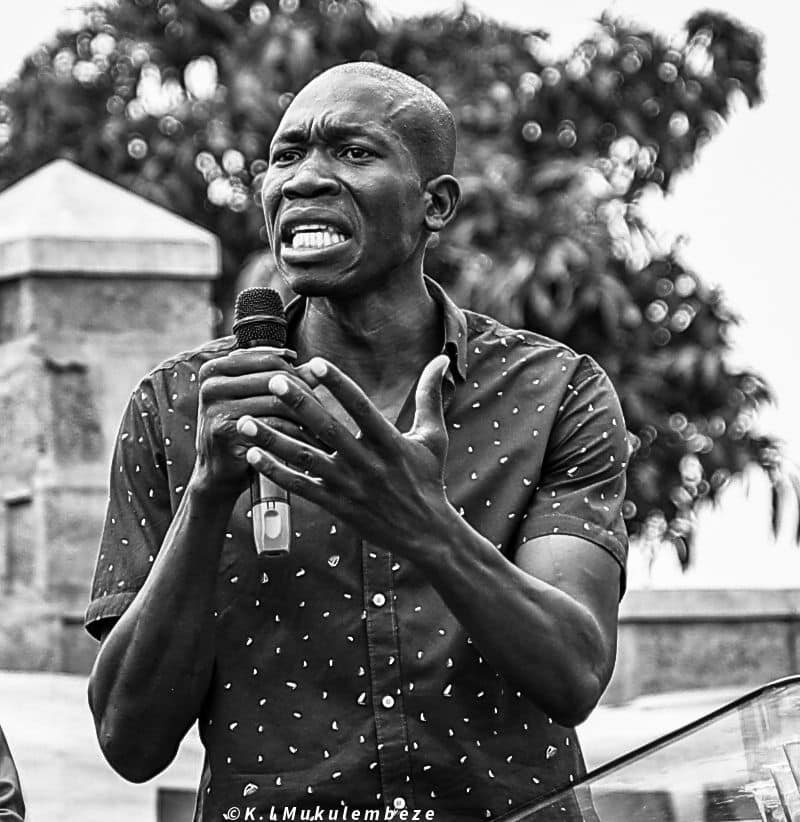

Africa
Africa’s deepening unemployment crisis
Half of all young people in South Africa are unemployed while more than 1.2 million graduates are without jobs in Uganda. More own initiatives could ease unemployment in Africa, experts say.

Steven Moyo gets up every day at 5 a.m. to look for work on the streets of South Africa’s economic metropolis, Johannesburg.
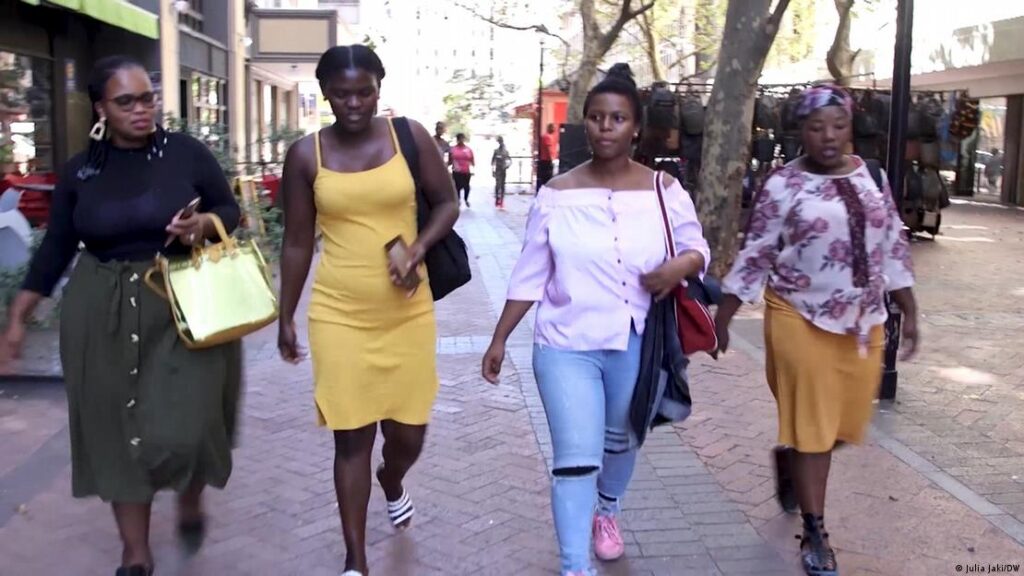
He talks to drivers at intersections, offers his services. Moyo is an electrician. On good days, he earns a maximum of €30 (around $31.50). But those days are becoming fewer.
South Africa is in a deep recession, exacerbated by the COVID-19 pandemic.
“The situation has gotten worse. No one is there to hire us,” Moyo told DW. He said he does not know where he will be able to earn money for food and rent.
Stories like Moyo’s are not uncommon in South Africa.
In Cape Town, Namhla Mcimbi told DW that she had to abandon her psychology studies because she could no longer pay the tuition fees.
Like many of her fellow students, Mcimbi has now fallen into unemployment.
However, contacts are important for a possible way out, the 20-something pointed out.
“People place their cousins, their sisters in companies, so it’s hard for you to get a job as a stranger,” she told DW.
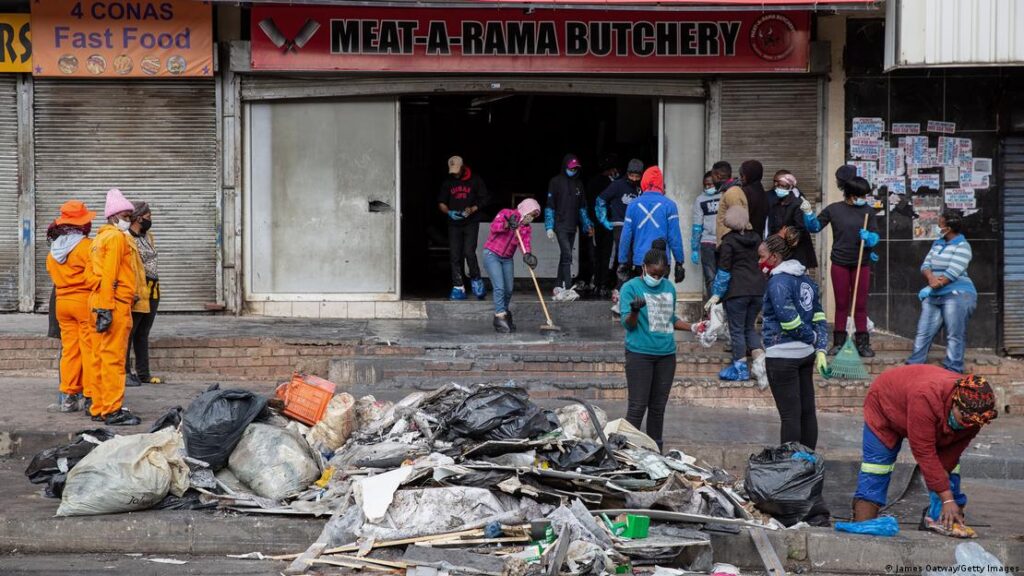
Unemployment rate dire in Namibia and Nigeria, too
The economic situation in South Africa is dire, with about half of all people under 34 unemployed.
Official figures show the joblessness rate has recovered slightly but at 32.7% in the fourth quarter of 2022, it is still among the highest both in Africa and the world.
The highest unemployment rates in the world were recently posted by Namibia and Nigeria, according to US media company Bloomberg. Djibouti and Eswatini also rank high on that list.
It is estimated that by 2050, a quarter of the world’s working population will live in Africa.
Many unemployed South African youth took part in a major spate of looting and unrest in Johannesburg and Durban in July 2021.
President Cyril Ramaphosa then was forced to introduce a welfare benefit for the unemployed of around €18 per month, said Professor Patrick Bond, a sociologist and economist at the University of Johannesburg.
“This is a sign of the state’s desperation to throw money at the problem,” he told DW.
But Bond doesn’t think this approach will achieve its goals. He argues for a basic income grant with a much higher amount of at least €40 per month to cover the vital costs of food and shelter.
But the main obstacle to this, he said, is international finance and pressure from credit rating agencies — high foreign debts put pressure on the finance minister to cut budgets and limit social wages. Political debates about a possible basic income in South Africa continue.
Lack of jobs — in rural and urban areas
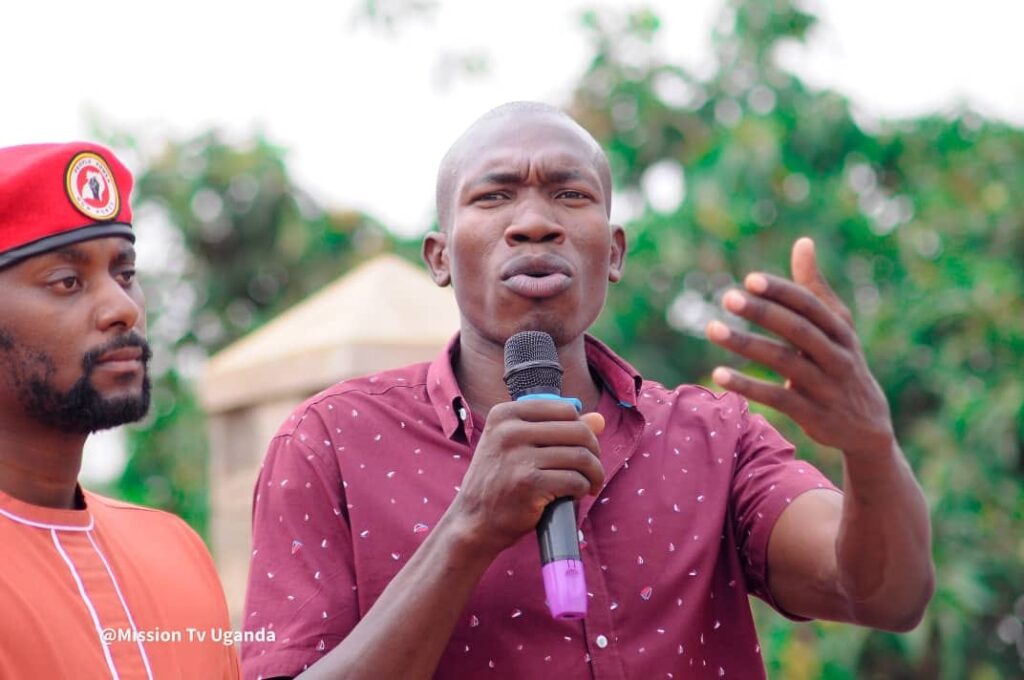
The employment crisis in sub-Saharan Africa is worsening, according to a study compiled by economist and Africa expert Robert Kappel of the Friedrich Ebert Foundation’s Africa Department.
“Every year, some 20 million people seek jobs that are not available in rural or urban areas,” it said.
Uganda is another example of the large gap between job supply and job demand. Some 400,000 young Ugandans enter the labor market each year competing for only about 52,000 available formal jobs, according to one study.
The study said high employment growth will be needed to address rising social challenges.
More than 1.2 million young graduates are currently without jobs in Uganda. Maureen Babidiye used to be one of them. She trained in travel management at an aviation school and has now been unemployed for two years.
After internships at various companies Babidiye tried to get a airline crew job — without success.
“Competition is fierce and nothing works without contacts,” she told DW.
Experts say self-initiative counts
Now Babidiye wants to become self-employed and set up her own travel agency, which she wants to build online through contacts.
Self-initiative is exactly what counts these days, according to Charles Ocici, director of the Enterprise Uganda Foundation.
“Jobs are few and far between, and they will continue to be lost. This is true not only for Uganda, but worldwide,” Ocici said. “The days are gone when everything went according to script — go to school, study hard and then get a job.”
Ocici said people need to rethink and be open to getting involved in the market in valuable ways. As an employee, or else with your own private business.
“Many people are more supportive of those who have an open mind about starting a business.”
Fear of Arab Spring-style uprising
The high level of discontent, especially among the youth, is increasingly worrying the establishment in South Africa, which fears an Arab Spring-style uprising, said the sociologist Patrick Bond.
In 2010, protests in Tunisia inspired young people in numerous Arab countries to revolt against political systems.
In South Africa, this scenario is often portrayed as a threat from a ruling party that was once very supportive of youth rebellion but is now part of the oppression of the people because it follows Western economic policies, Bond said.
If the West continues to force South Africa to repay its debts and the country has less money for employment programs and social services, it risks turning the country further toward the BRICS countries of Russia, China and India and regimes like Iran and Saudi Arabia.
For Namhla Mcimbi in Cape Town, a glimmer of hope came after the frustration. She turned to Harambee Youth Employment Accelerator, an NGO that promotes youth employment through partnerships.
There, she learned basic requirements needed to find employment. Not long afterwards, she had landed a temporary job as a teaching assistant.
Frank Yiga and Jane Nyingi contributed to this article
Edited by Keith Walker and Benita van Eyssen
Credit DW
Africa
Bobiwine in year 3020 a defining topic in African books of history
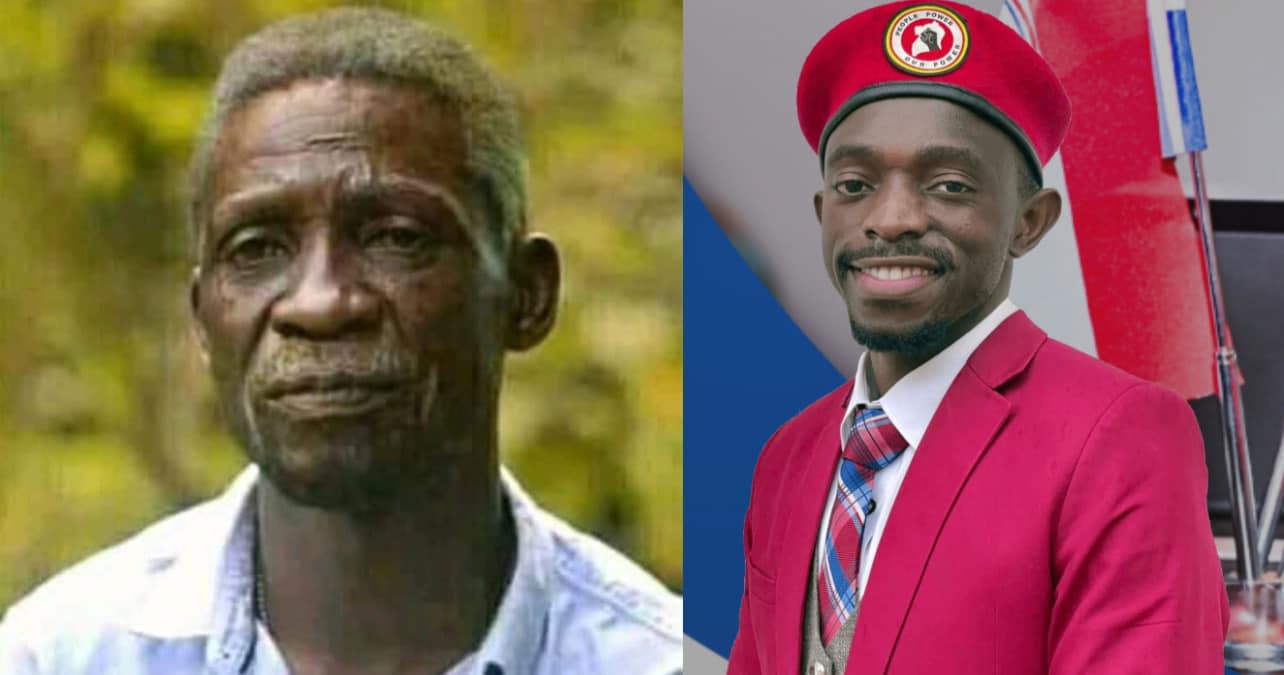
Reminder;
Believe it or not, by year 3020, “BOBI WINE AND PEOPLE POWER” will be a defining topic in African books of history.
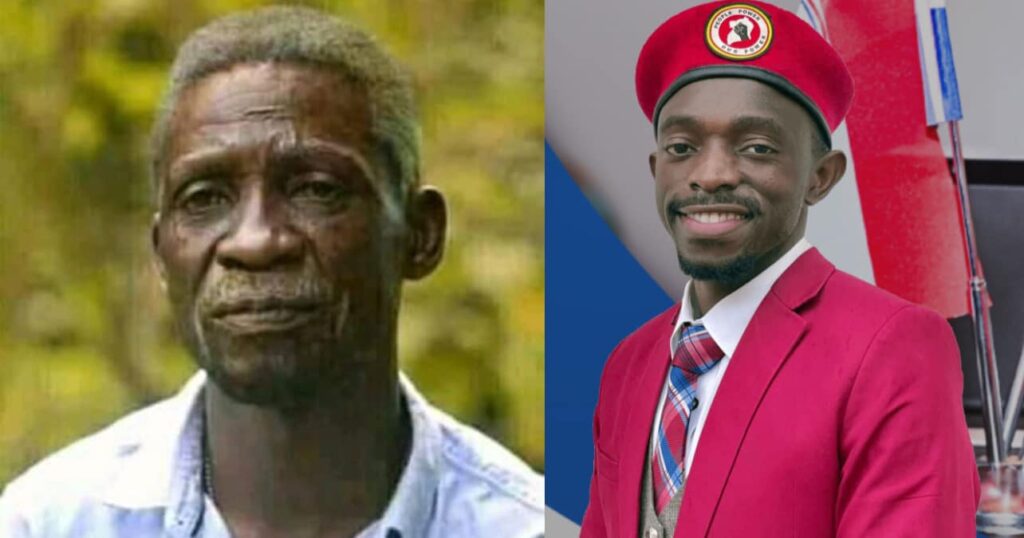
Our sons and daughters will have the privilege of reading about this brilliant, fearless, and patriotic young leader who flipped the script, sacrificed his celebrity lifestyle and took it upon himself to free Uganda from a long Serving dictator, M7 who had misruled Uganda for 40 years.
It will be both an inspiring and heartbreaking sad tale for our grand sons and daughters as they will be subjected to scripts that will feature the high Corruption rate , the Impunity, Unemployment,
nepotism, Military rule, land grabbing, endless Murders of innocent Ugandans, and so much more that existed before Bobi Wine’s leadership.
But as they read between the lines, they will shed tears of joy knowing that Robert Kyagulanyi Ssentamu, aka Bobi Wine, and the entire People Power movement eventually triumphed, transformed Uganda, set strong democratic precedents, and paved the way that leaders after them followed to steer the nation in the right direction, the nation our grand sons and daughters will be enjoying by that time.
By then, the People Power revolution will have swept and dismantled dictatorships across Africa, as African nations that were subjects of dictatorship gained confidence after seeing it done in Uganda. By this time, Uganda is now a developed country, the pearl of Africa again – in its true meaning, in all aspects of life social economic and political, Everything went back to normal, you cant believe we have ever had a dictator called Museveni. The days of dictatorship will feel like a distant, unimaginable past.
Statues of Bobi Wine, clad in full People Power combat gear and the iconic beret, stand tall in major cities. People come take photos, shoot films, and document history—without fear of teargas or repression. A free and democratic Uganda finally a reality.
Bwetukomawo, today is February 3, 2025.
The weight of this change rests on our shoulders, and the truth is no one is going to do it for us. If we want a free Uganda, we must rise as a generation, stand together, and take action.
This fight demands more than just hope, it requires courage, trust, discipline, and an unshakable resolve. The forces of oppression will test us as they have done countless tyms but we must stand firm, knowing that every sacrifice, every effort, brings us closer to victory.
And make no mistake, at the end of it all, we shall win. Uganda will be free, and history will remember this generation as the one that refused to kneel before tyranny.
The time is now. The struggle continues. Together, we shall overcome.
I remain,#JBMuwonge #PeoplePowerOurPower

Exclusive
Bobi Wine The People’s President Full Documentary
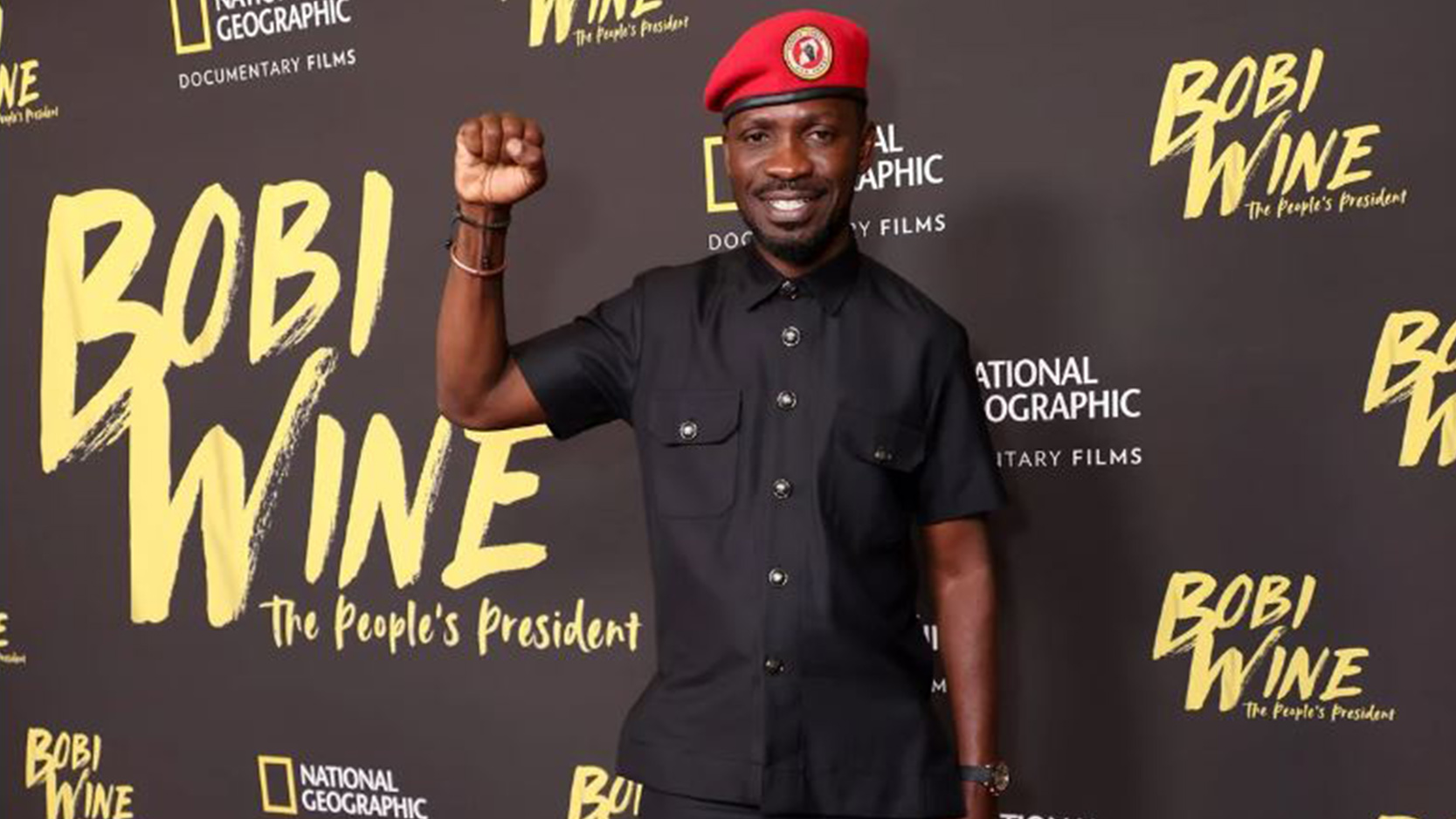
Briefly about Bobi wine the people’s president
Bobi Wine: The People’s President is a gripping documentary that chronicles the remarkable journey of Bobi Wine, a pop star-turned-politician, as he strives to dismantle Uganda’s brutal dictatorship under Museveni brutal rule. The film delves into the 2021 Ugandan presidential election, where Bobi Wine, alongside his wife Barbie, leads a courageous fight for freedom against President Museveni’s oppressive 35-year regime
In this powerful narrative, Bobi Wine’s activism and determination resonate as he rallies his people, challenging the status quo and advocating for change. The documentary sheds light on the intersection of music, politics, and human rights, making it a must-watch for those interested in social justice and the pursuit of democracy.
If you’re curious to explore this compelling story, you can find the full documentary on platforms like National Geographic and Disney+. It’s a testament to the indomitable spirit of those who dare to challenge oppressive systems and fight for a better future.
Here is the Full Documentary of Bobi wine the People’s President
Bobi Wine The People’s President
Born in the slums of Kampala, Bobi Wine, Ugandan opposition leader, former member of parliament, activist and national superstar musician, risks his life to fight the ruthless regime led by Yoweri Museveni. Museveni has been in power since 1986 and changed Uganda’s constitution to enable him to run for yet another five-year term. Running in the country’s 2021 presidential elections, Bobi Wine uses his music to denounce the dictatorial regime and support his life mission to defend the oppressed and the voiceless people of Uganda. In this fight, he must also take on the country’s police and military, which are not afraid to use violence and torture in a vain attempt to intimidate and silence him and his supporters.
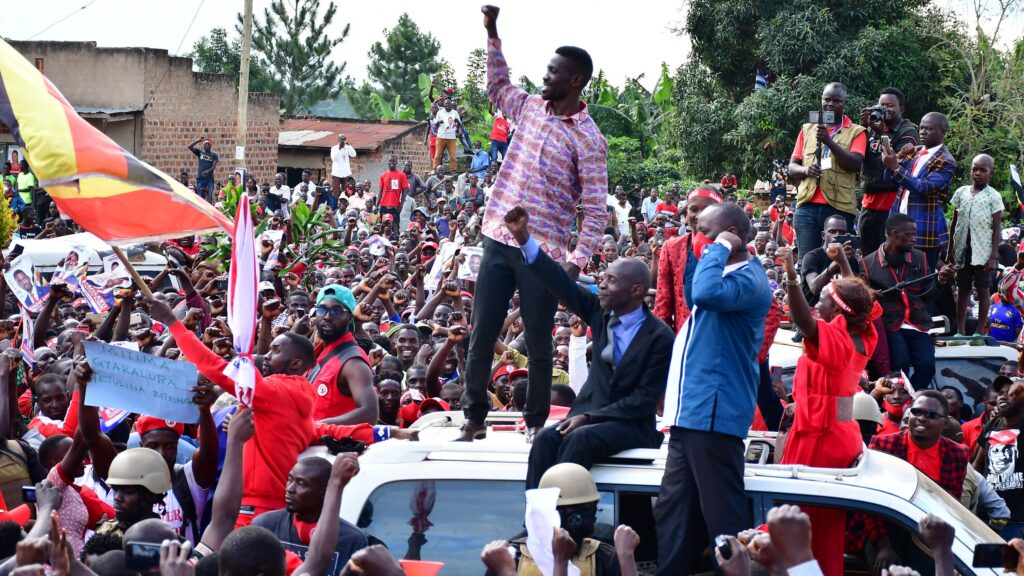
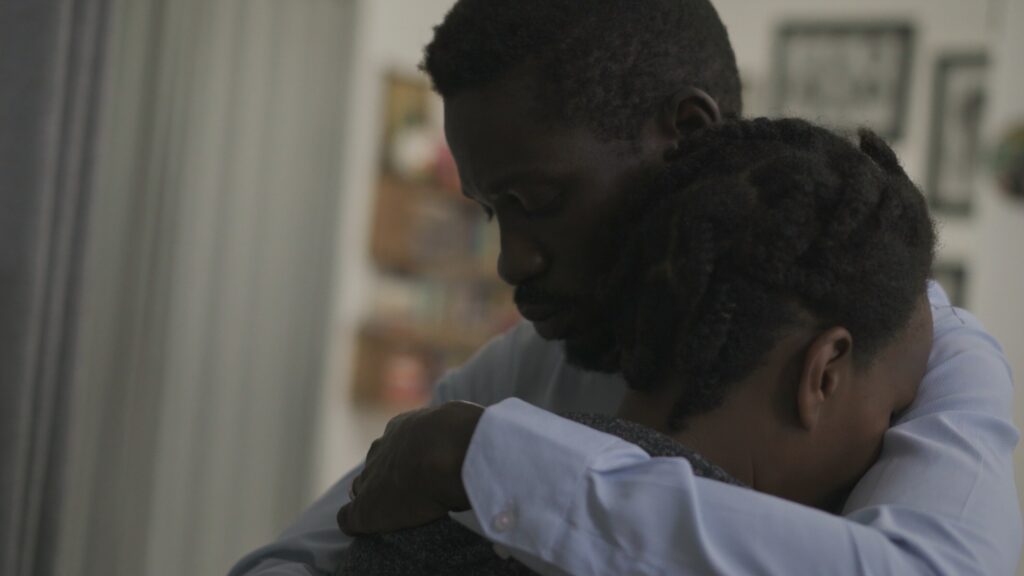
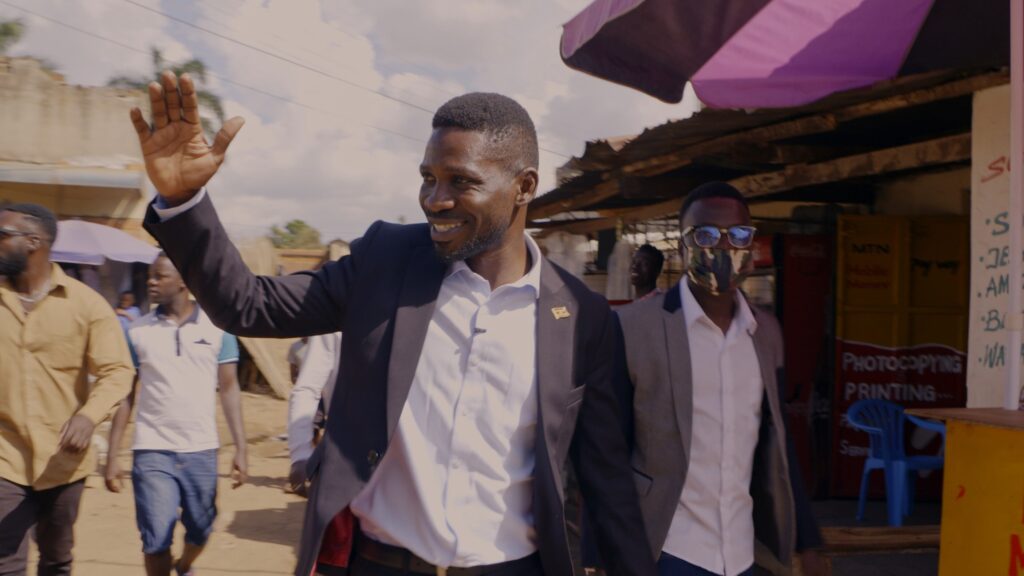
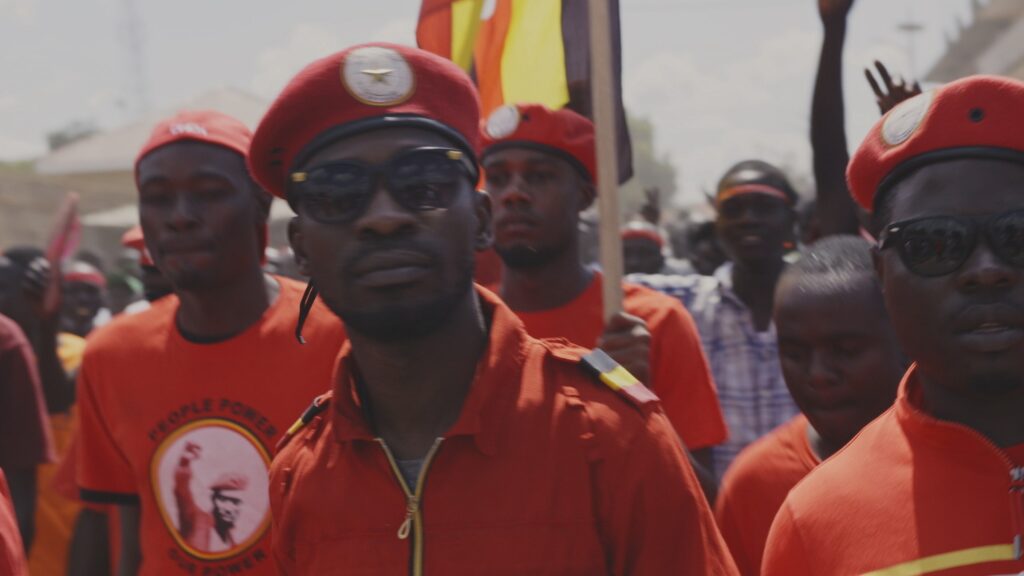
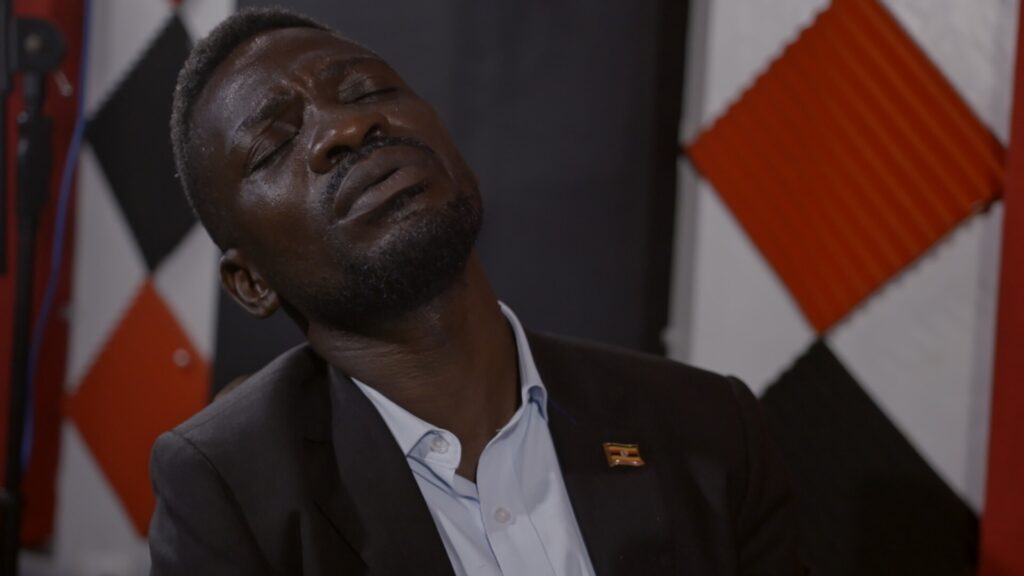
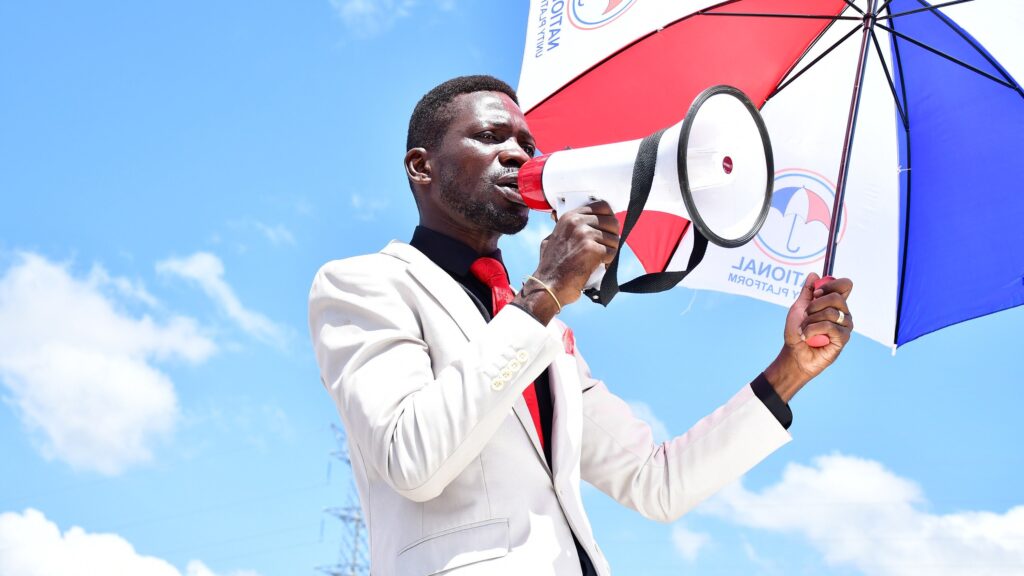
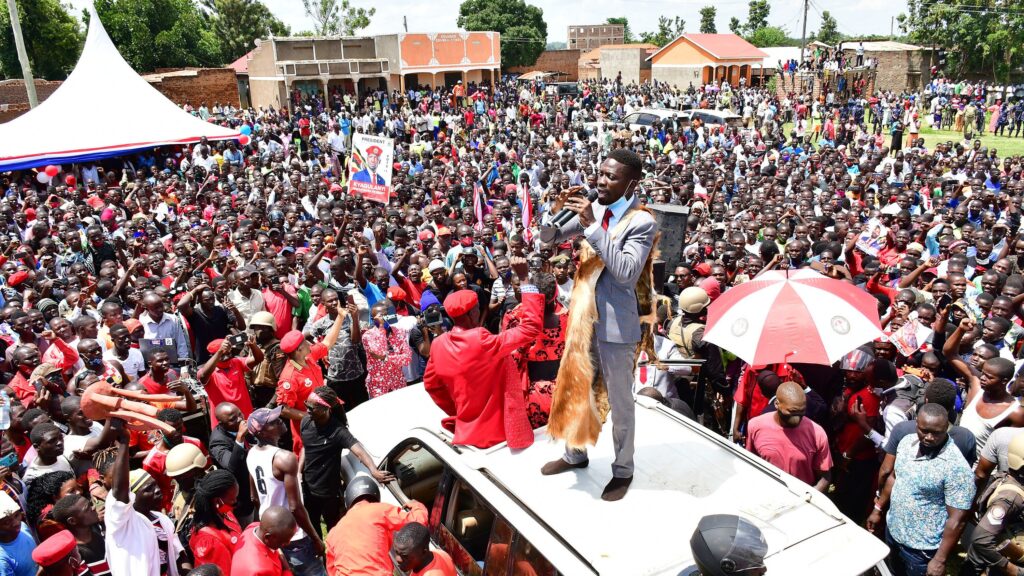
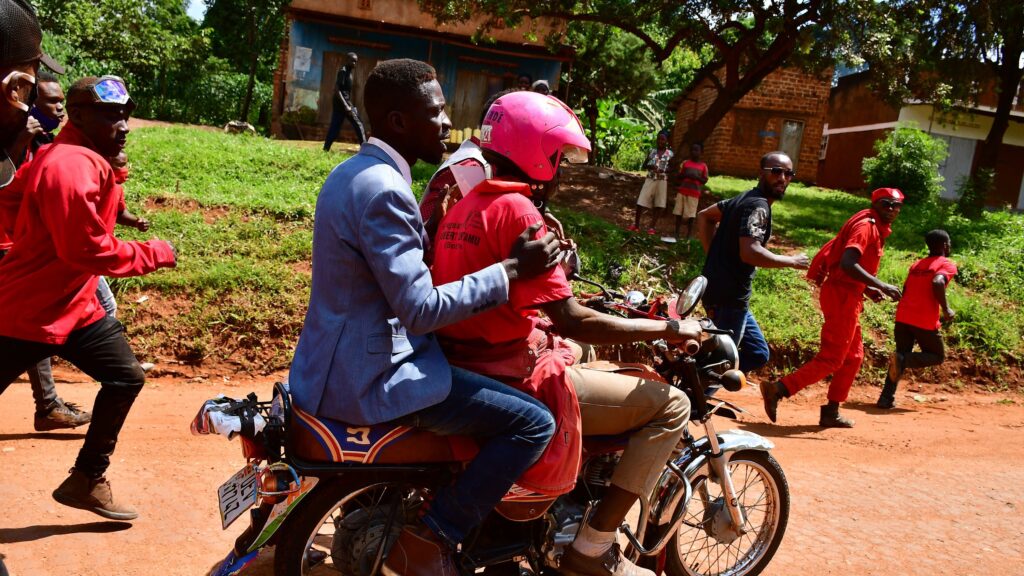
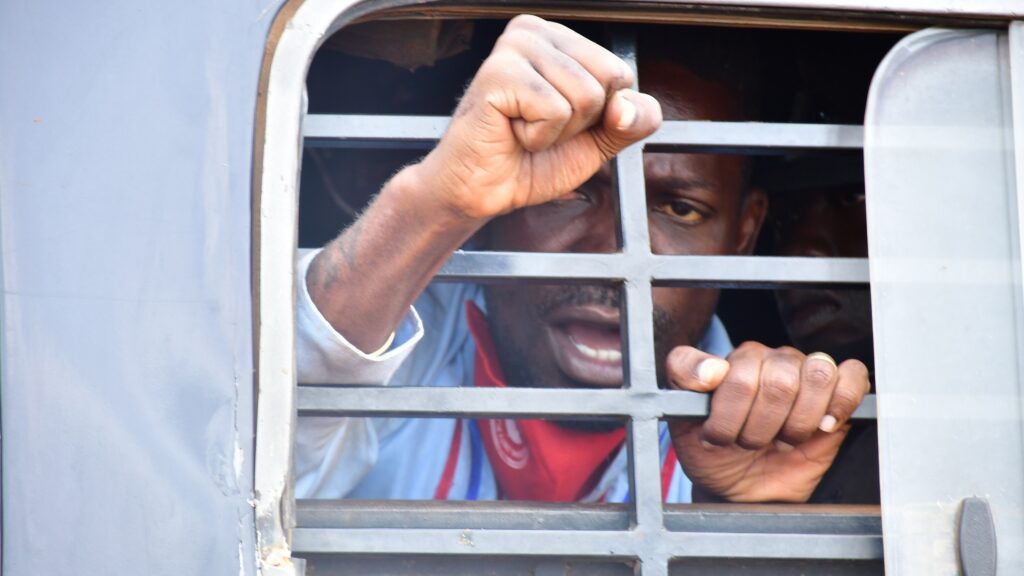
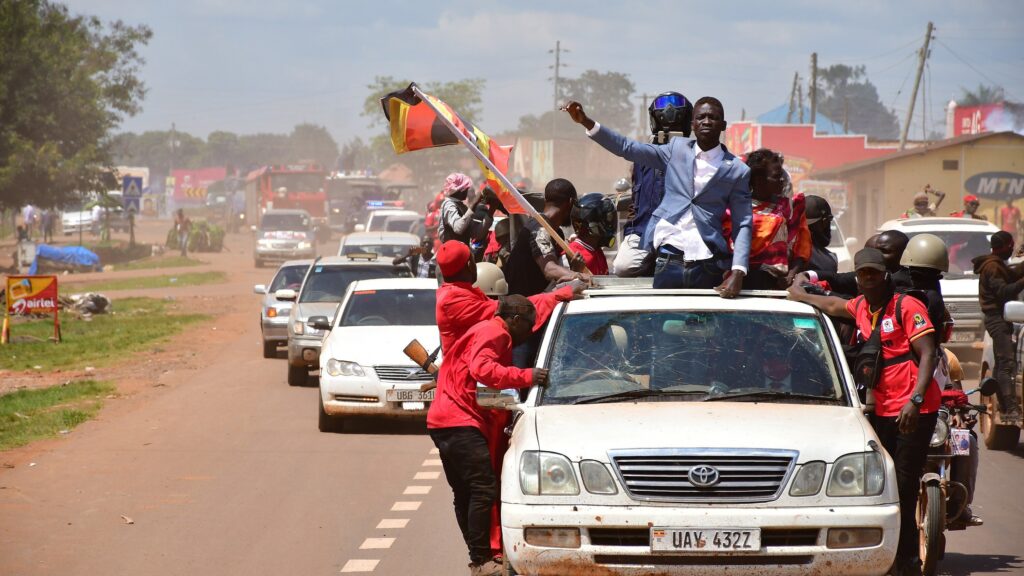
Bobi Wine The People’s President
Meet the Participants
BOBI WINE
PARTICIPANT
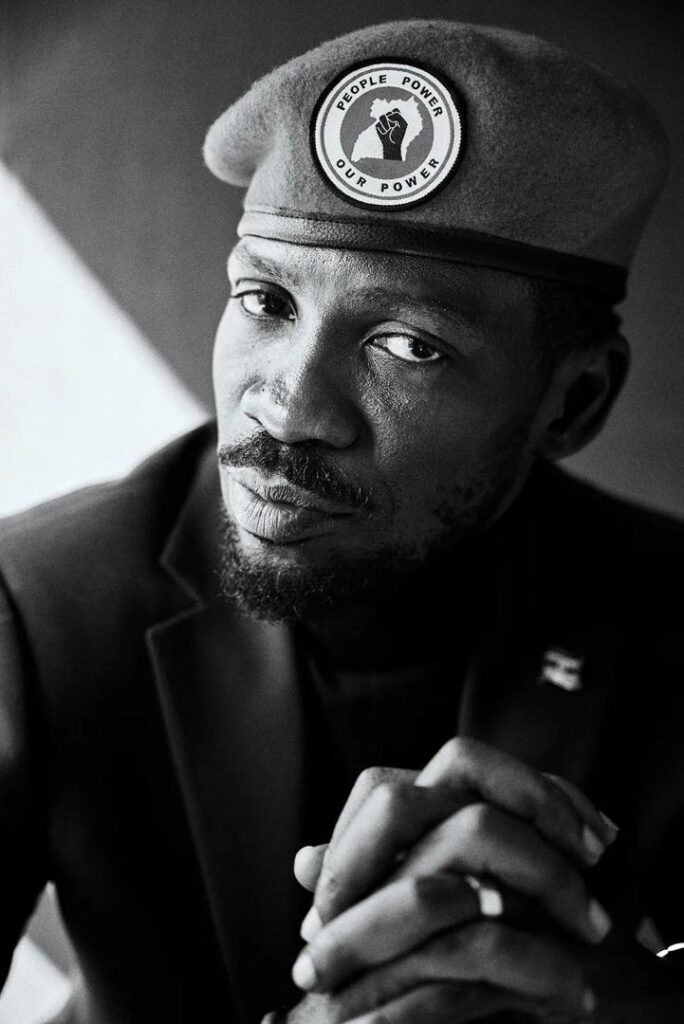
Robert Kyagulanyi Ssentamu, famously known as Bobi Wine, is a musician turned politician who is the current leader of the National Unity Platform (NUP) and the People Power Movement. Bobi was born in Mpigi District in Uganda on Feb. 12, 1982. He grew up in the Kamwokya slums in the northeast part of Kampala. His mother was a nurse, and his father was a veterinarian and farmer.
Bobi is a singer, musician, actor and activist. He has campaigned for hospital sanitization, malaria prevention, refugees’ rights and children’s education. His songs are known as peaceful protest and edutainment (a mix between education and entertainment), focusing on the struggles of Uganda’s underprivileged and low-income earners and calling upon young people to join politics and change their country’s destiny. He is married to Barbara Itungo Kyagulanyi, known as Barbie, with whom he has four children.
His characteristic enthusiasm for democratic discourse and the popularity he had earned from his prior artistic and philanthropic endeavors successfully endured his transition to politics. Bobi Wine continues to lead the NUP, the largest political opposition party in Uganda and has become the main opposition leader to President Museveni’s rule.
BARBARA “BARBIE” ITUNGO KYAGULANYI
PARTICIPANT

Barbara “Barbie” Itungo Kyagulanyi is an author, philanthropist and human rights activist.
Barbie’s 2012 book, “Golden Memories of a Village Belle,” gives insight into her early childhood experiences with village politics and local council elections, her African family unit, and the abject poverty that led to the early marriages of her childhood friends.
In 2013, Barbie founded Caring Hearts Uganda, a nongovernmental organization (NGO) that seeks to champion development projects in rural areas, prioritizing health care, maternity, education and sanitary programs. The NGO supports empowering leadership in girls through HIV/AIDS eradication, menstrual hygiene instruction, and continuing education, teaching traditional Ugandan values while encouraging girls to stay in school. In the community, the NGO has extended entrepreneurship skills to teen mothers for personal development and sustainability.
With a master’s degree in human rights law from the University of London, Barbie has taken on the mantle of demanding equity and equality for women in political spaces through the women’s wing of the National Unity Platform political party, which is led by her husband, Kyagulanyi Ssentamu.
Meet the Filmmakers
CHRISTOPHER SHARP
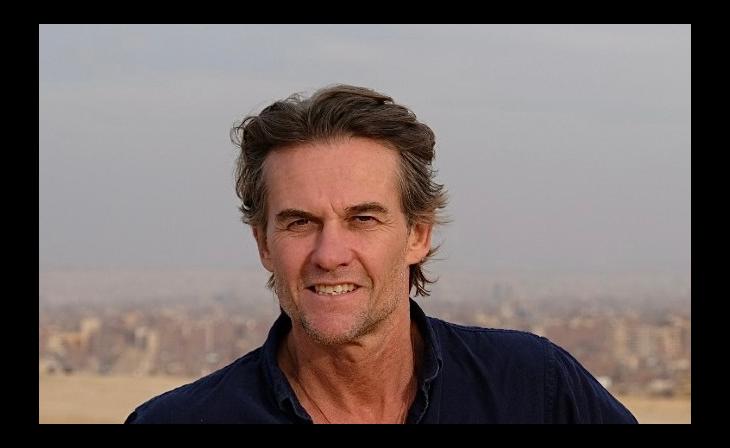
DIRECTOR, PRODUCER
Christopher Sharp was born in Uganda and has a deep appreciation for the country’s people, culture and extraordinary natural beauty. He spent his early working life as a film editor in London and more recently has revisited the profession as director of ‘Bobi Wine: The People’s President’.
He met Bobi and Barbie in 2017 and was inspired by their courage. Christopher believed in their extraordinary capacity to enact change, and instantly knew that their enormous sacrifice and resilience needed to be documented.
He worked closely with a number of talented individuals, including Editor Paul Carlin, as well as acclaimed Producer John Battsek, Co-Director Moses Bwayo, and other inspirational cinematographers. Collectively they have made a film which he hopes gives courage to all those who struggle under oppressive regimes.
MOSES BWAYO
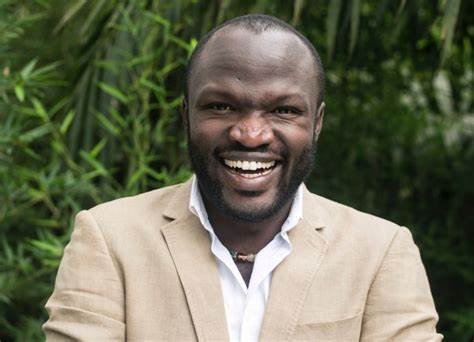
DIRECTOR, DIRECTOR OF PHOTOGRAPHY
Moses Bwayo is a Los Angeles-based filmmaker known for shooting and co-directing the award-winning feature documentary “Bobi Wine: The People’s President” (2023). Born in the village of Bududa on the slopes of Mount Elgon in eastern Uganda, Moses was introduced to filmmaking by peeking through cracks in the walls of local kibandas, bootleg movie theatres housed in wooden shacks. Wrapt in the exciting camerawork and storytelling of Hollywood’s martial arts films, Moses immediately fell in love with cinema.
At 19, he moved to the capital of Uganda, got a job as a portrait photographer, and began studying at Kampala University. In 2013, he graduated with honors with his Bachelor of Arts in journalism and mass communication. Moses went on to earn a postgraduate diploma at Kampala Film School, the nation’s top film and television conservatory, and started working as a production sound recordist and cinematographer.
His life changed when he met Oscar®-nominated director Mira Nair, who was facilitating a workshop for aspiring filmmakers at her Maisha Film Labs. He was chosen as a boom operator on Nair’s short documentary “A Fork, a Spoon and a Knight” (2014). Subsequently, Nair took Moses under her wing and mentored him for two years, during which he performed sundry jobs for Disney’s “Queen of Katwe” (2016), travelling to the United States for the first time for the final mix with Nair in New York.
In 2016, Moses started his own production company in Kampala, Jajja Productions, where he oversaw production and post-production services on various commercial, documentary, and feature films. Moses’ reputation as a courageous verité cinematographer and local fixer began to grow, shooting for ABC, BBC, and VICE News for their Uganda-based productions.
In late 2017 His life changed again when he began work on the feature documentary “Bobi Wine: The People’s President.” Working closely with co-director and producer Christopher, Moses spent five harrowing years following Bobi Wine, a pop star turned politician who ran for president opposing Yoweri Museveni, a dictator who has been in power since 1986. During the production, Moses was arrested, imprisoned, and shot in the face at close range while filming. Two-time Oscar winner John Battsek also produced the film. With mounting threats to him and his family for making the film, Moses fled Uganda to the United States.
“Bobi Wine: The People’s President” premiered to a 10-minute standing ovation at the 2022 Venice Film Festival in September 2022, where it sold to National Geographic before making its U.S. premiere at the 2022 Telluride Film Festival. The film won the Audience Award for Best Documentary Feature at the 2022 Hamptons International Film Festival.
JOHN BATTSEK
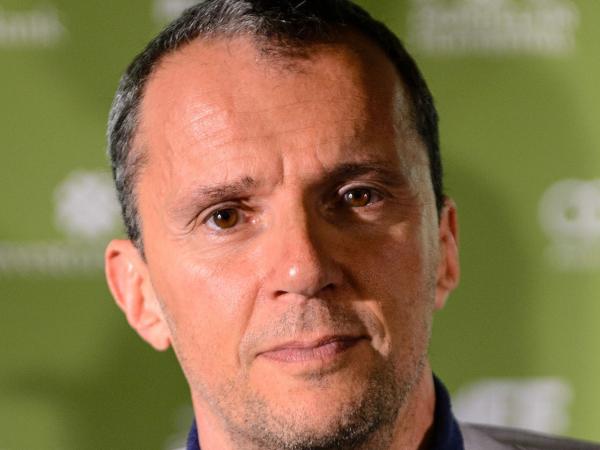
PRODUCER
John Battsek is one of the most successful producers in feature documentary filmmaking. Starting with Academy Award winning One Day in September, which John conceived of and produced, he has since been responsible for some of the most acclaimed documentaries in recent years.
John’s most notable credits include Academy Award & BAFTA-winning Searching For Sugar Man, Academy Award-nominated Restrepo and Winter On Fire, and Emmy-winning Manhunt: The Story Of The Hunt For Bin Laden, The Tillman Story and Forever Pure. John served as producer on Grammy-nominee Eric Clapton: Life In 12 Bars and the BAFTA nominated & Peabody winning Listen to Me Marlon. John also served as Executive Producer on the BAFTA Award winning The Imposter and Hillsborough.
In 2020, John launched his new production company Ventureland with long-time PrettyBird collaborators Kerstin Emhoff, Ali Brown and Paul Hunter. His most recent credits include Emmy Award winning The Rescue (National Geographic), double Emmy winning Rising Phoenix (Netflix), critically acclaimed biopics Sir Alex Ferguson: Never Give In, and Lady Boss: The Jackie Collins Story. In 2022 John served as producer on Mary McCartney’s directorial debut, If These Walls Could Sing, the story of London’s iconic Abbey Road recording studio, which premiered at Telluride 2022 and was released on Disney+.
Most recently, John produced the freediving documentary The Deepest Breath which premiered at Sundance 2023 and will be released by Netflix later this year. John also produced Alex Gibney’s portrait of former tennis legend Boris Becker (Apple TV+) and a three-part series on David Beckham directed by Fisher Stevens for Netflix.
Africa
Paul Biya major challenger dies at 81
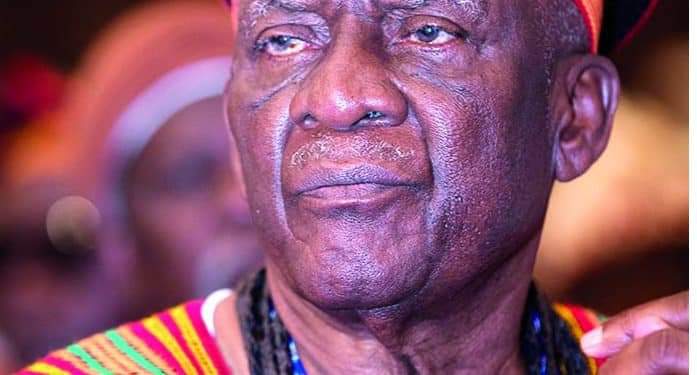
Veteran politician Ni John Fru, the head of Cameroon opposition has died aged 81 according to local press reports.
Ni has been the chairman of the Social Democratic Front (SDF) which is challenging Paul Biya’s 4 decade rule.
Mr. Ni according to sources had just returned to Cameroon three days ago, from Switzerland, where he was receiving treatment from a protracted illness.
-
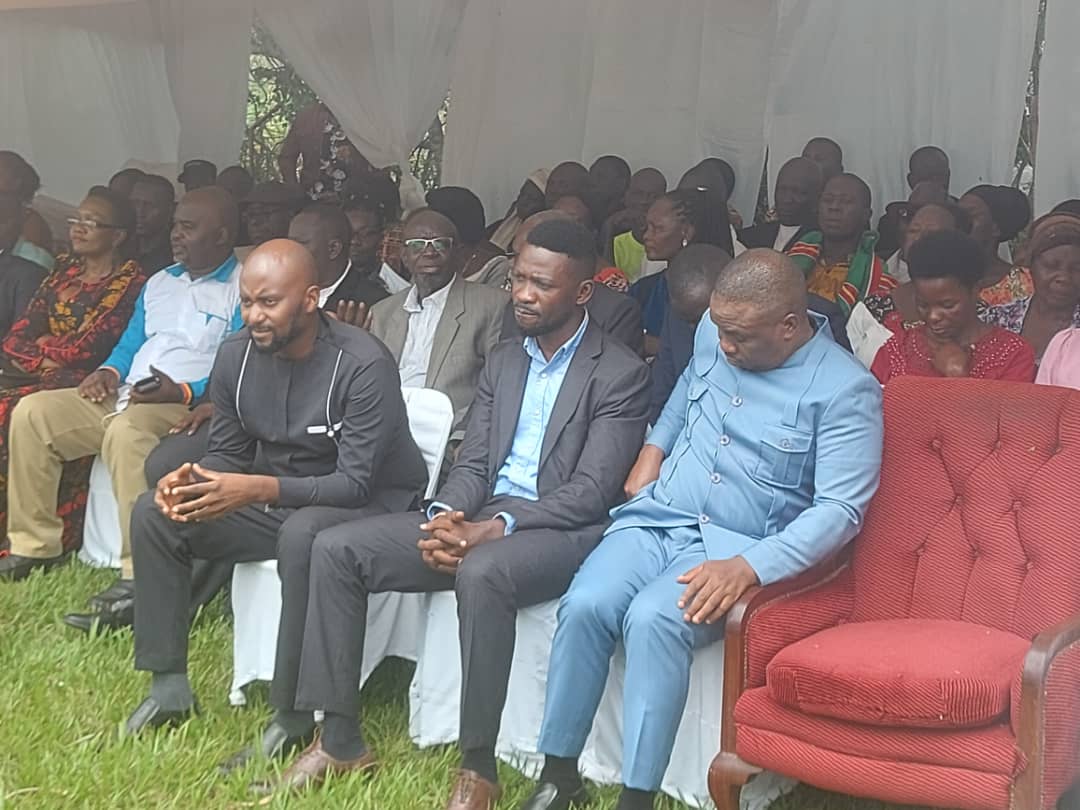
 News2 years ago
News2 years agoPresident Bobi attends burial of wife to ex LOP Oguttu
-
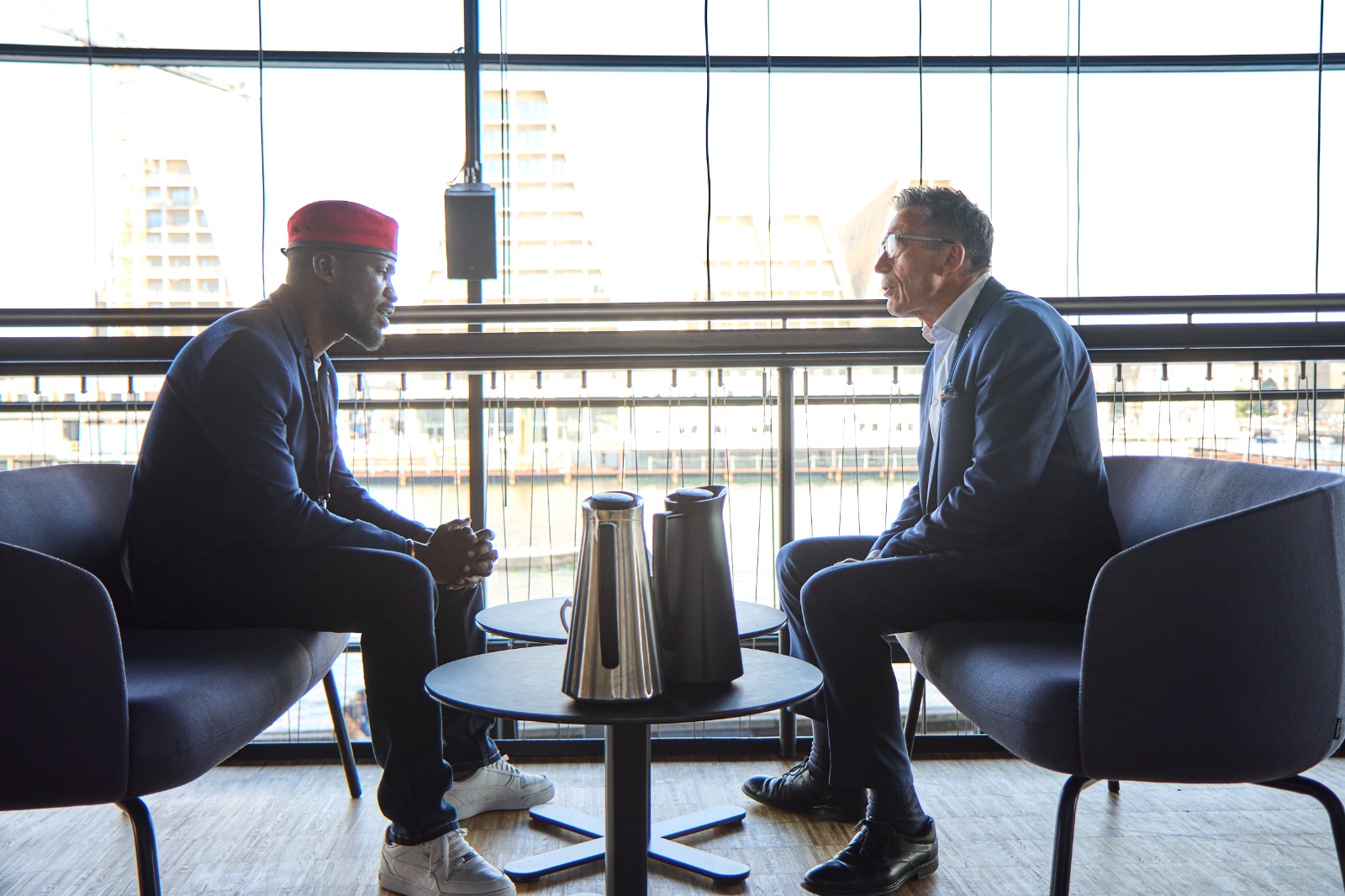
 News2 years ago
News2 years agoBobi meets ex NATO boss, discuss key issues
-

 Uganda3 years ago
Uganda3 years agoThis is why dictator M7 throws “Small victories” to the opposition
-
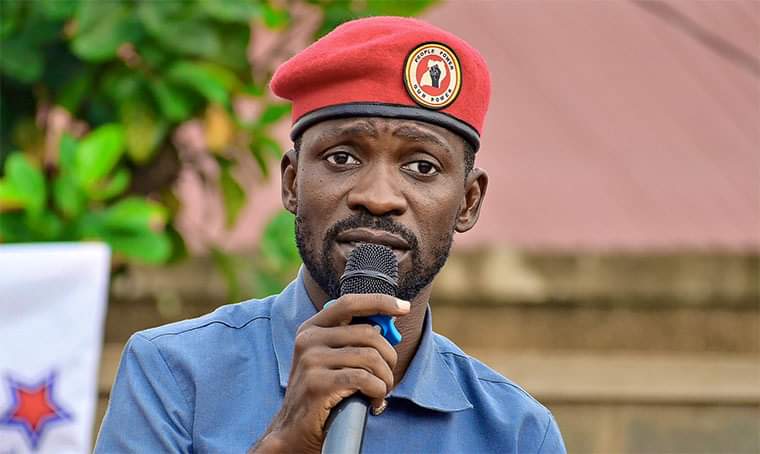
 News2 years ago
News2 years agoEXCLUSIVE: A recap of Bobi Wine interview with BBS
-
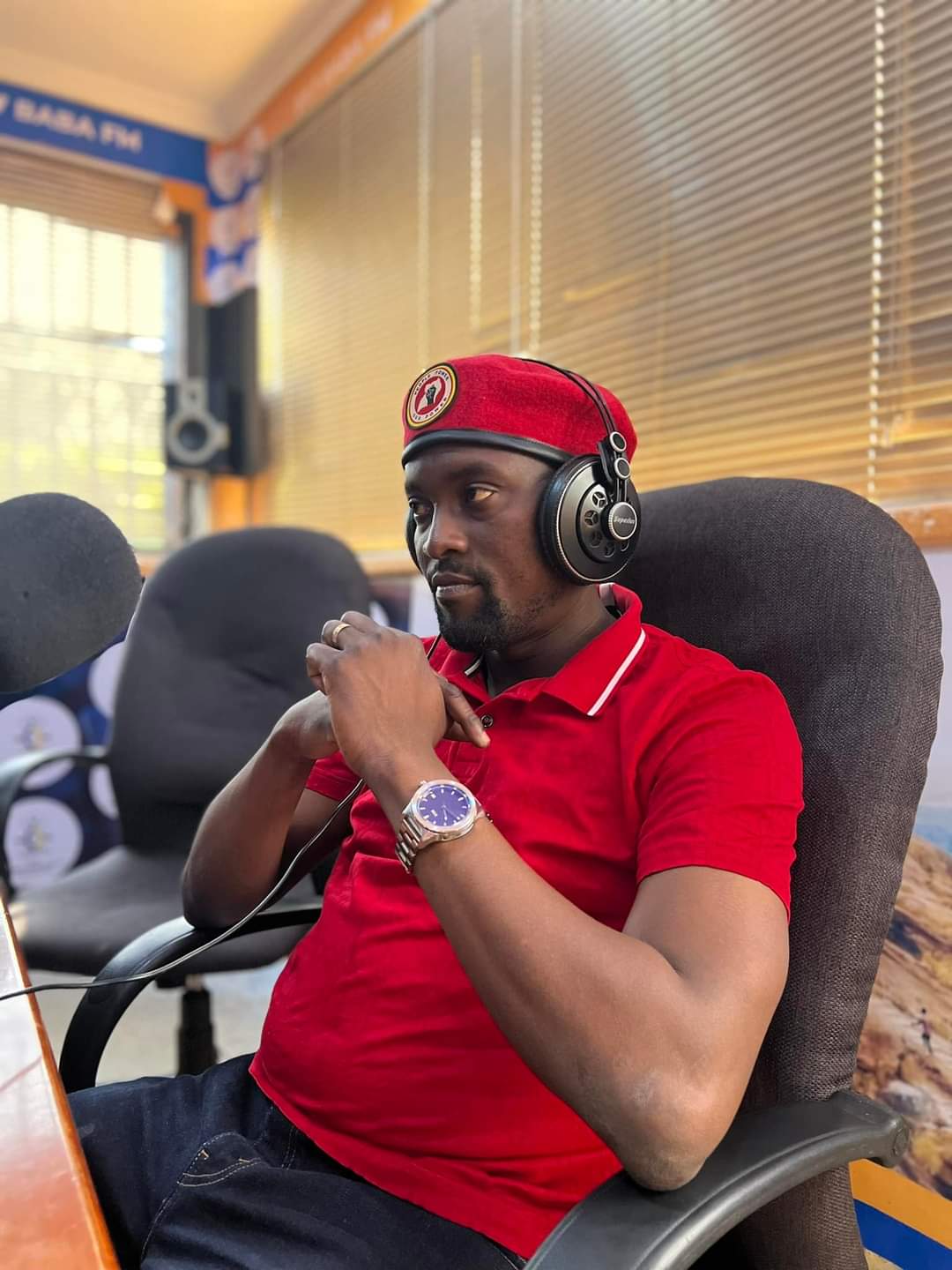
 Exclusive2 years ago
Exclusive2 years agoNUP Deputy Spokesperson Waiswa celebrates birthday in style
-

 Exclusive1 year ago
Exclusive1 year agoBobi Wine The People’s President Full Documentary







